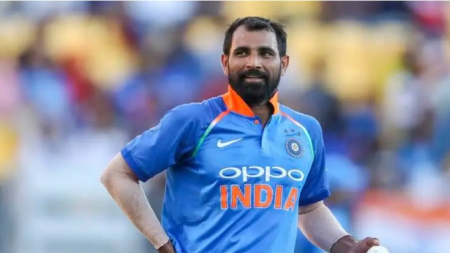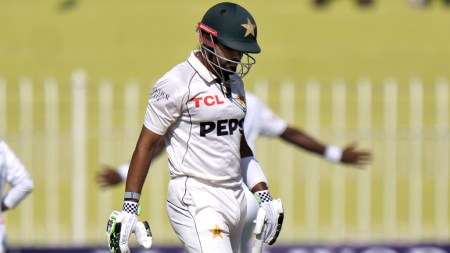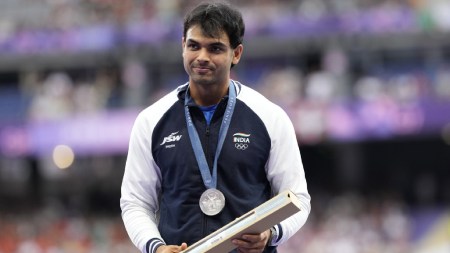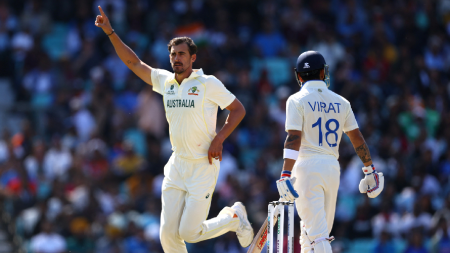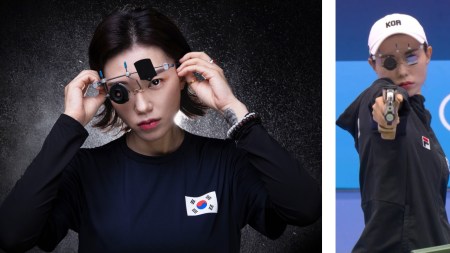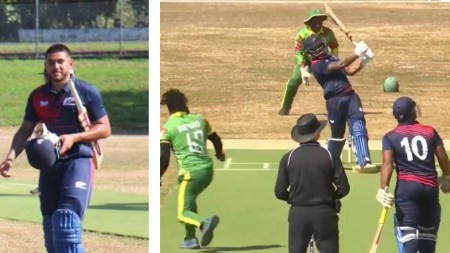Is there money in playing table tennis? Top paddler Archana Kamath quits sport to pursue academics, raising questions about its economic viability
A few days after her stunning show at the Paris Olympics, 24-year-old paddler Archana Kamath left her coach Anshul Garg numb when she told him that she no longer wanted to play table tennis professionally. She saw no future in it, and it didn’t make sense for her long-term future. She would rather go to the US to study. She was, however, open to having a frank discussion with him.
Archana had a rocky road in the lead-up to the Paris Olympics as her place in the three-member team was questioned when she was chosen over Ayhika Mukherjee, who had beaten World No. 1 Sun Yingsha earlier this year and was in sensational form.

Still, Archana didn’t let the murmurs get to her and was instrumental in the Indian women’s table tennis team creating history by reaching the quarterfinal of the team event – the country’s best-ever showing at the Summer Games in table tennis. Archana was the lone warrior in India’s loss against Germany, winning the only match in the tie against a much higher-ranked Xiaona Shan.
All she asked Garg was if there was any possibility of winning a medal at the next Olympics – Los Angeles 2028.
Garg couldn’t find the words at first. It is tough to answer such a question. After all, table tennis has been dominated by the Chinese for decades. They’ve won gold in men’s and women’s team events since its inception in 2008. They’ve dominated in singles too, both men and women. Only the likes of Japan, Korea and Chinese Taipei – and a certain Swede named Truls Moregard – have managed to compete with them on the international stage.
India is far behind. Their best showing was when Manika Batra and Sreeja Akula reached the Round of 16 in Paris. A medal is still a long way.
“I told her that it’s difficult. It’s going to take a lot of hard work. She’s ranked outside the top 100 in the world but she improved so much in the past couple of months. But I think she had already made up her mind to go. And once she makes up her mind, it’s difficult to change it,” Garg told The Indian Express.
Unwilling to put herself through the grind that goes with being a professional paddler, juggling between domestic and international tournaments where the payout is almost nothing if you don’t reach at least the semifinal, Archana decided that for a long-term plan, it made more sense to study abroad. Being a promising talent, she did have the backing of TOPs, Olympic Gold Quest (OGQ), and other sponsors, but for her, it was always an Olympic medal that brought her to the sport. And she’s brilliant with her studies too.
“My brother works at NASA. He’s my idol and he too encourages me to study. So I make the time to complete all my studies and I enjoy it. I’m good at it too,” she had told The Indian Express earlier this year.
The economics of the sport didn’t appeal to her, and she decided to enroll at the University of Michigan to, ironically, study economics.
Archana’s decision, however, raises quite a few important questions — whether it’s economically viable to become a professional TT player in the country.
Eight-time national champion and current Table Tennis Federation of India (TTFI) secretary Kamlesh Mehta, says that it’s improving drastically.
“Table tennis is getting a lot of corporate backing. The Ultimate Table Tennis (UTT) has all corporate owners. Players are being supported by professional sports agencies too. There’s a lot happening and the government with TTFI is doing whatever we can to support players and create a system that makes players want to stay in the sport. The number of professional academies that have come up in the country is a testament to that. Our results on the international stage – even in youth tournaments – show that we are doing something right,” he said.
Garg, a national medallist himself, says the pipeline of promising players needs to be protected.
“The top players generally don’t have any problem because they get a lot of support. But what about the upcoming players? Yes, they get support in terms of training and equipment. No expense is spared there but what about a livelihood? That gets difficult so Archana’s decision is understandable,” Garg said.
National coach Massimo Costantini said India needs to create a strong system where players can see TT as a career.
“When I saw Archana competing, I thought, Ok, we have won another tile in our mosaic of Indian table tennis players. I was aware of her always thinking about academics. It didn’t surprise me much but I understand her decision,” says Costantini. “We need to create a stronger system to make sport a career. We have also to think about how to preserve and guarantee a brighter future for sportspersons who are giving a part of their life to play for the country.”
Disclaimer: The copyright of this article belongs to the original author. Reposting this article is solely for the purpose of information dissemination and does not constitute any investment advice. If there is any infringement, please contact us immediately. We will make corrections or deletions as necessary. Thank you.
